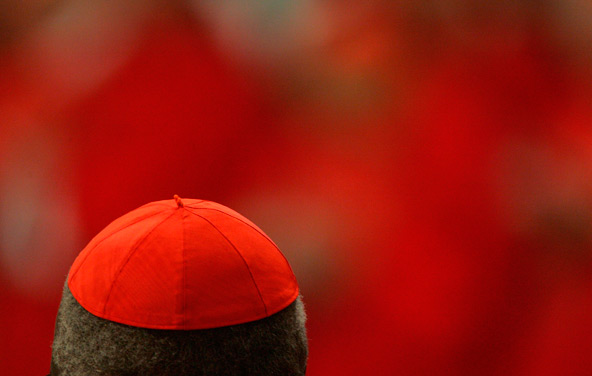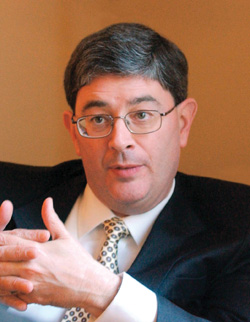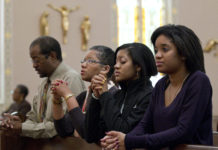

The recent papal interregnum and conclave underscored the importance of re-forming, and reforming, the College of Cardinals.

Opinions expressed are the writers’ and not necessarily the views of The Catholic Sun or the Diocese of Phoenix.
As configured on Feb. 28, 2013 (when Benedict XVI’s abdication took effect), the College was a somewhat strange electorate, albeit one that produced a striking result. Almost 20 percent of its members were retired. Only eight cardinal-electors were under 65 (and half of the youngsters were Americans — Cardinals Burke, DiNardo, Dolan and Harvey). Neither the Dean nor Vice-Dean of the College was eligible to vote, the Dean being 85 and the Vice-Dean being 90; yet the 85-year-old Dean presided over the daily General Congregations of cardinals that assessed the state of the world Church before the conclave was enclosed.
There were other curiosities. India had more cardinal-electors than France (5-4) or Great Britain (5-nil, as they’d say in the Barclays Premier League). Cardinal Lubomyr Husar, emeritus major-archbishop of the largest of the Eastern Catholic Churches, the Ukrainian Greek Catholic Church, missed the conclave by two days, having turned 80 on Feb. 26; the retired president of the Pontifical Council for Promoting Christian Unity, Walter Kasper, got in under the wire, for he turned 85 days after Benedict’s abdication took effect.
And while no one imagines that the College of Cardinals should “represent” the world Church the way the U.S. House of Representatives “represents” the population of the United States, it did seem odd that Latin America, where over half the world’s Catholics live, sent 19 cardinal-electors into the Sistine Chapel, while Italy, where Catholic practice is not exactly robust these days among 4 percent of the global Catholic population, had 28 electors.
What to do about these anomalies? Some practical suggestions, several drawn from my new book, “Evangelical Catholicism: Deep Reform in the 21st-Century Church” (Basic Books):
1) Eliminate “automatic” red hats for archdioceses where the practice of the faith is moribund. If 7 percent of the local Catholic population is attending Mass on Sunday, as is sadly the case in some ancient European sees, why should the bishop or archbishop of that see be guaranteed membership in the College of Cardinals? Let the bishops in these dead zones show that they can re-evangelize Catholic wastelands; then return the red hat to those locales.
2) Amend the relevant apostolic constitution so that most of the “pontifical councils” in the Roman Curia become in-house research institutes led, not by cardinals, but by qualified priests, religious or laity.
3) Change the custom by which the heads of various Vatican administrative offices — the Government of Vatican City State, the Administration of the Patrimony of the Apostolic See, the Prefecture for the Economic Affairs of the Holy See — are automatically cardinals: a reform that would also speak to Pope Francis’s strictures against clerical careerism.
4) Use the “slots” in the papal electorate made possible by these reforms to reorganize the College geographically and demographically.
I would also consider expanding the College to a maximum of 144 cardinal-electors (a nice biblical number: 12 Tribes x 12 Apostles), while changing the conclave rules so that all cardinals lose their vote on retirement from daily diocesan or curial service, not when they turn 80. There is wisdom in age; but an electorate in which almost one in five voters is a pensioner is not a well-designed electorate.
Neither the Dean nor the Vice-Dean of the College should be a cardinal-without-a-vote; it makes little sense for the man who presides over the cardinals’ meetings during a papal interregnum (in which all cardinals participate, irrespective of age), or the man who would fill that leadership role in an emergency, to be someone who will not have the responsibility of casting a ballot. And since the Church cannot count on humility to impel the Dean and Vice-Dean to retire when each loses his vote, the interregnum rules should be changed.
Finally, the cardinal-electors should meet regularly — perhaps once every 18 months, for a global review of the New Evangelization — so that they can get to know each other better, and thus be a more well-informed electorate.




![[VIDEO] Make Sunday feel like Sunday again](https://www.catholicsun.org/wp-content/uploads/2021/04/2021-YOUTUBE-BISHOP-MESSAGE-THUMBNAIL-ENGLISH-218x150.png)
